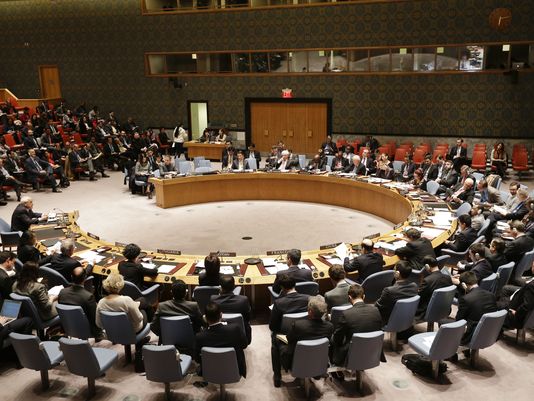UN rejects Palestinian resolution to end Israel’s occupation
United Nations, Dec. 31 (NsNewsWire) — The Security Council rejected a Palestinian resolution demanding an end to Israeli occupation within three years late Tuesday, a blow to an Arab campaign to get the U.N.’s most powerful body to take action to achieve an independent state of Palestine.
The United States, Israel’s closest ally, had made clear its opposition to the draft resolution, insisting on a negotiated peace agreement between Israel and the Palestinians, not an imposed timetable. It would have used its veto if necessary but it didn’t have to because the resolution failed to get the minimum nine “yes” votes required for adoption by the 15-member council, reports AP.
The resolution received eight “yes” votes, two “no” votes — one from the United States and the other from Australia — and five abstentions.
“We voted against this resolution not because we are comfortable with the status quo. We voted against it because … peace must come from hard compromises that occur at the negotiating table,” U.S. Ambassador Samantha Power said.
She criticized the decision to bring the draft resolution to a vote as a “staged confrontation that will not bring the parties closer.” She added that the resolution was “deeply unbalanced” and didn’t take into account Israel’s security concerns.
“Our effort was a serious effort, genuine effort, to open the door for peace,” said Riyad Mansour, the Palestinian U.N. ambassador. “Unfortunately, the Security Council is not ready to listen to that message.”
Until shortly before the vote, council diplomats had expected the resolution to get nine “yes” votes. But Nigeria, which was believed to support the resolution, abstained. Its ambassador, U. Joy Ogwu, echoed the U.S. position saying the ultimate path to peace lies “in a negotiated solution.”
The Palestinians, nonetheless, could point to support from two European nations, France and Luxembourg, reflecting the growing impatience especially in Europe over the lack of progress in achieving a two-state solution, and the increasing pressure on governments to do something to end the decades-old conflict.
This impatience, and frustration over the Security Council’s paralysis in dealing with the Israeli-Palestinian conflict, was echoed by many on the council, including the United States.
Jordan’s U.N. Ambassador Dina Kawar, the Arab representative on the council, said after the vote: “The fact that this draft resolution was not adopted will not at all prevent us from proceeding to push the international community, specifically the United Nations, towards an effective involvement to achieving a resolution to this conflict.”
